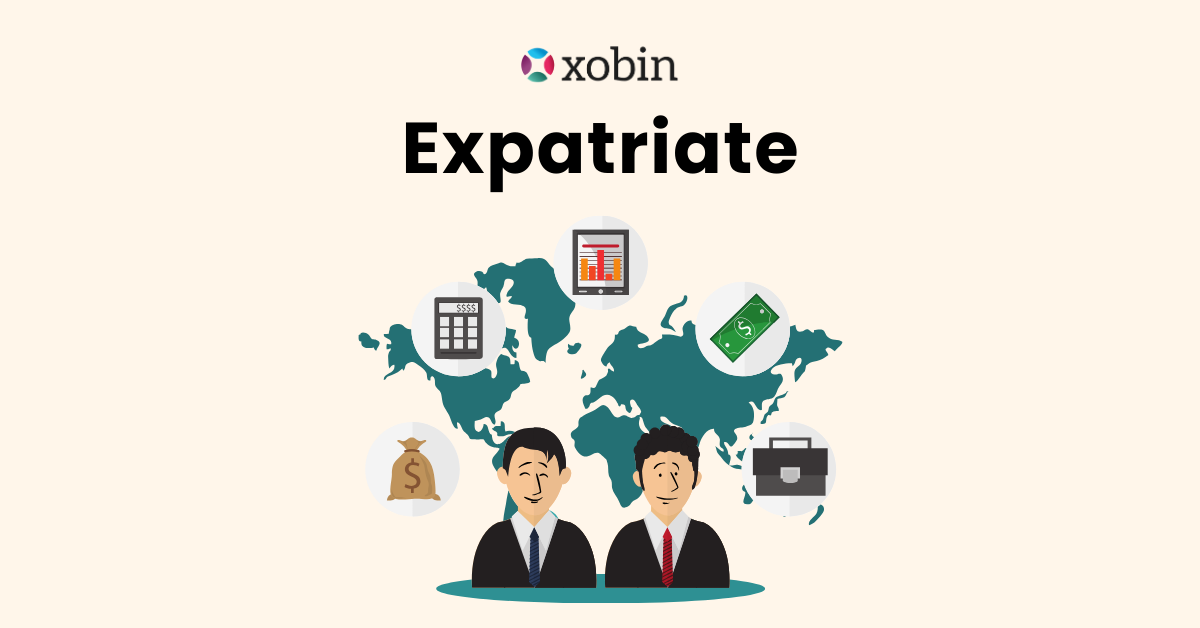XOBIPEDIA
HR Glossary

Today when about 80% of large and midsize companies currently send their employees abroad, and 45% plan to increase the number they have on an assignment.
You might have a lot of questions related to expatriates. Like “What are expatriates? Is having them in your company expensive? What are its pros and cons? What are the taxes on ex-pats?”.
So, let’s get to them.
What is an Expatriate?
An expatriate (also known as an ex-pat) is an employee who is sent to a foreign country for a long-term work assignment by their employers. The work assignments usually include setting up, managing, or populate a new branch.
These employees usually receive additional benefits such as car and driver allowance, cost of living, relocating allowance, etc.
What are the pros and cons of having an expatriate?
| Advantages | Disadvantages |
| Experienced workers in only a new setting. Difficult to find local talent until the base is set up. The new branch must meet your existing market standards. | Expensive Higher rate of burnout due to reasons like a new culture, feeling of isolation. Legal risks as every country have different migration policies |

Some of the allowances given to expatriate
Foreign Service Premiums
Given to the employee so that they can move their family to a new country. It usually lies between 10 to 25% of the base salary.
Hardship Allowance
Hardship allowances are higher when an expatriate is sent to a place with poor living conditions, health care, etc.
Cost of Living Allowances
It gives expatriates access to maintain their standard of living.
Utility Allowances
It is given to an expatriate to pay their utility bills.
Furnishing Allowances
Some companies give the expatriate’s furnishings by sometimes paying the shipping costs or a fixed amount to buy furnishings.
Education Allowances
Companies usually pay the full cost of tuition, books, and supplies for their expatriate’s kids.
Home Leave Allowances
Companies provide expatriates and their families with the fare for a round-trip cost at least once a year.
Relocation Allowances
It is given to makes up for the mistakes, if any, made in any of the other allowances for unexpected complications.
Medical Allowances
Companies pay for all medical expenses like they do for any other employee.
Car and Driver Allowances
This allows the expatriate to buy or rent a car in the relocated country.
Taxation of ex-pat
The taxation of ex-pat is quite complex as it is different for different countries and requires you to clearly understand them. You must know about terms like Double Taxation Avoidance Agreement, Certificate of Coverage, etc.
If we take an example of Indian ex-pats, it is quite simple since they don’t need to pay taxes in India for their overseas income. But in the case of a foreign expatriate working in India, they need to pay for the services rendered in India under Section 9(1)(ii) of the Income Tax Act.
We hope this article helped you. For more interesting articles;

Recommended Content

Video Interviews can simplify your hiring
Don’t let a packed schedule be a hindrance in recruitment. Use structured interviews with the power of video to screen applicants. Understand the communication skills, motivation, and job skills using video interviews.

Pre-employment Testing: The Complete Guide
Move over from pen-paper based tests and manually checked assignments to pre-employment assessments. Democratize your organization hiring by screening for skills before you interview.

How can Employers adapt to Remote Hiring
With most jobs going remote, your best applicants could be in Melbourne or Miami. From remote screening and virtual interviews to remote onboarding, Learn the best practices to get started.


